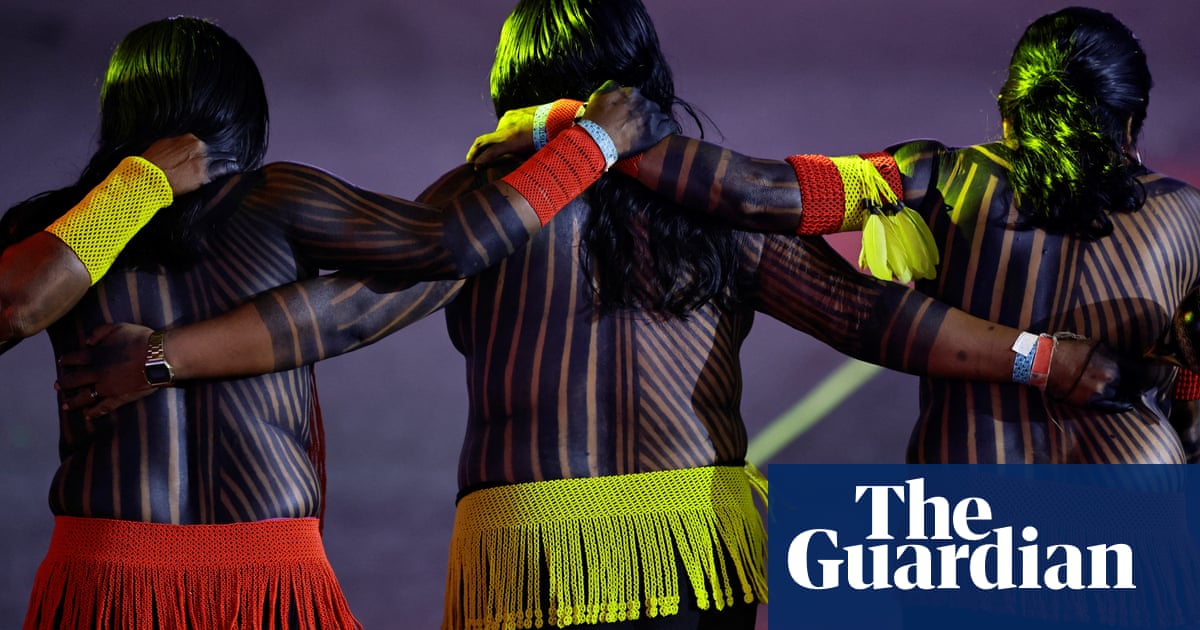A growing number of Brazilians are reclaiming their Indigenous identity, after years of fighting for rights
When a census taker came knocking on Vahnessa de Oliveira Ferreira’s door in Rio de Janeiro in 2010 and asked her how she identified racially, she replied “mixed”. Twelve years later, when asked the same question for Brazil’s 2022 census, she had changed her answer to “Indigenous”.
“Indigenous people learned to justify themselves [as mixed-race] because for a long time, being Indigenous was synonymous with being lazy, a good-for-nothing, a savage,” said Ferreira, a tour guide and social educator who now proudly identifies as a trans Indigenous woman.
![]()
Full Article
The 37-year-old is part of a growing number of Brazilians reclaiming their Indigenous identity, as reflected in new census data published on Monday. According to the Brazilian Institute of Geography and Statistics (IBGE), the number of people identifying as Indigenous has increased by nearly 90% in just 12 years, from 896,917 to 1.69 million.
An estimated 5 million native people lived on the land that would later be christened Brazil when Portuguese invaders arrived in 1500. Decimated first by disease, war and enslavement, and more recently by state oppression and a policy of miscegenation that effectively erased Indigenous experiences, the native population had officially fallen to a few hundred thousand by the end of the 20th century.
“There was a tendency for Indigenous peoples to deny their identities, to protect themselves from racism, historical violence, ethnocidal policies,” said Rosani Kamury Kaingang, an Indigenous researcher at the Federal University of Pará, where she is known by her legal Portuguese name, Rosani de Fatima Fernandes.
Increasingly meticulous work by the IBGE, both within and outside Indigenous territories, has helped produce ever more accurate data on Brazil’s native population in the census. But this growth in official statistics also reflects the success of an organised Indigenous movement that has fought tirelessly to gain rights, visibility and a political voice in the last four decades.
“This created a much more favourable scenario for Indigenous people in terms of legal rights and public policy,” said João Pacheco de Oliveira, professor of anthropology at the Federal University of Rio de Janeiro (UFRJ).
Even the violent anti-Indigenous stance of the previous Jair Bolsonaro government could not roll back a process of growing appreciation for Indigenous cultures and causes.
“The Indigenous issue gained visibility through a positive lens, and this had an effect on some people who started to look at themselves in the mirror, see themselves as Indigenous and begin this process of reclaiming their identity,” said Tarisson Nawa, a doctoral student in social anthropology at the UFRJ and active member of the Indigenous movement. This is strengthened by an understanding of identity as defined by socio-cultural characteristics rather than physical traits, he added.
Miguel da Silva Guimarães started seeing himself as Indigenous after his grandfather revealed the family’s origins on his deathbed. “Only our elders knew we were Indigenous. It was a way of protecting us,” said the 58-year-old, whose family left the Amazon forest for the city of Belém when he was a child, fleeing the threat of land invaders.
Guimarães now goes by Kwarahy Tembé Tenetehar – a name bestowed on him by Indigenous relatives he met while searching for his personal history – and has made it his mission to help other people reclaim their Indigenous identity. To that end he founded the Wyka Kwara Association, an organisation that has welcomed around 1,000 urban Indigenous people as they seek to reconnect with their culture and communities.
Many are from ethnic groups considered extinct by the state, a label described as “absurd” by Pacheco de Oliveira. “People can recover their traditions, identity, languages,” he said.
After tracing back her Indigenous ancestry that had been erased through a process of urban migration, Ferreira identifies as Goitacá, a group from the northern coast of Rio de Janeiro state officially declared extinct centuries ago. She is one of a handful of resurgent Goitacás.
“Now I shout from the rooftops that I exist,” she said. “We are a part of Brazilian society.”


